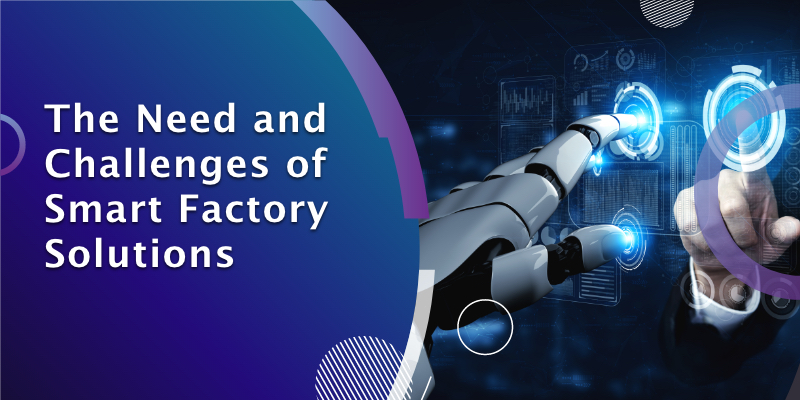Smart Factory: The Present of Manufacturing Innovation

Futurism Technologies
August 12, 2020 - 2.2K
5 Min Read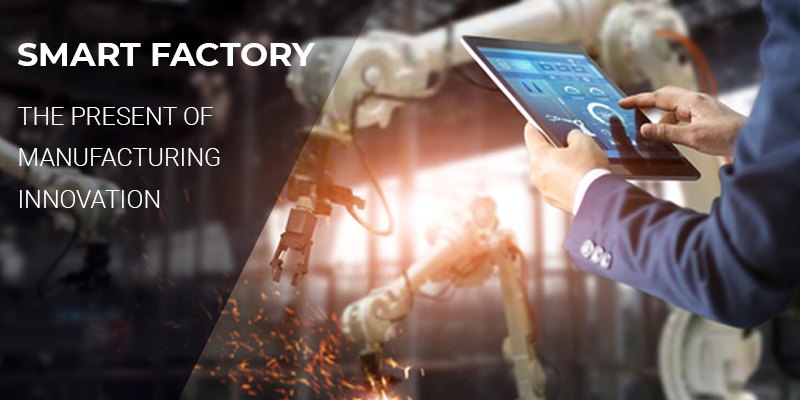
Small Manufacturing Businesses need to modernize their processes and adopt new age technologies to catch up with the latest trends. Smart Factory Solutions are revolutionizing the manufacturing completely changing the way small and large enterprises think, process and do manufacturing across industries.
There is no shortage of modern technologies in the world right now providing interconnectivity and helping the businesses scale up their legacy systems for increased efficiency.
Smart Factory Solution embraces an amalgamation of myriad modern technologies and utilize real-time access, advanced security, and agile methodologies to get into the next generation of technology.
Smart Factory Solutions for Industry 4.0

Manufacturers today require efficiency in production and delivery across the channels to ensure satisfaction and enhanced user experience. The operational functions and the various production lines should be in sync to deliver the products faster.
Futurism Smart Factory Solutions provide systems that enable real time cross-department communication and integration. It helps in making components which are highly reliable, proficient in real time changes, and rapidly configurable with no compromise to quality.
Self-Optimizing Machinery in Smart Factories For Reduced Downtime
Machine Learning aids smart factories constantly upskill themselves using the data from the millions and billions of manufactured products within the factory. The power of artificial intelligence is constantly unleashing the immense potential in which the machines and equipment would be extremely intelligent and can predict, optimize, and customize on their own.
By studying the data, business values, and mapping it to various scenarios, the machine learning would provide massive capabilities to predict likely repairs and replacements.
Industry 4.0: Disrupting the Manufacturing With Automation and Connectivity
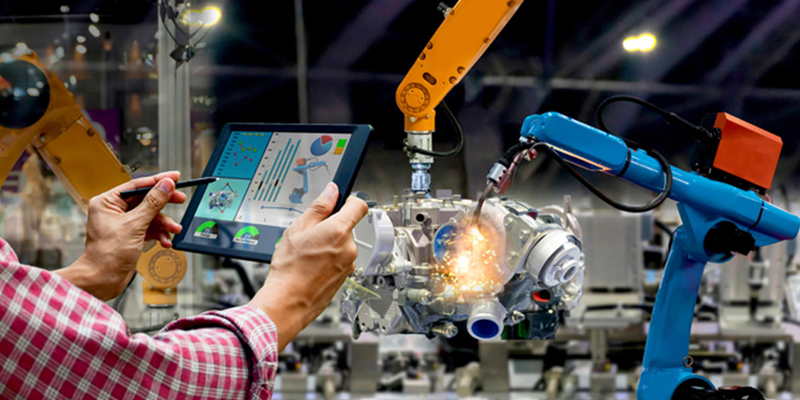
Internet of Things is the most prominent technology driving the Industries toward operational efficiency to cut costs and increase customer satisfaction. By automating and connecting the isolated units within a manufacturing setup, industry 4.0 ensures a more customizable and modern factory in which there is a transformational shift in production and delivery.
Industry players need to adapt fast to the new digitalization revolution to stay competitive and efficiently deliver in the changed ecosystems.
Why Do Industries Need To Adopt Smart Manufacturing?
Smart Manufacturing brings the power of the Internet of Things, Cloud, Big Data, Salesforce, and 5G to bring an overall manufacturing process to the next level. Vital use of technology ensures increased efficiency, better production, and increase competitiveness.
- Backed by strong research, informed decision-making, and increased capabilities, prudently replace the traditional manufacturing processes’ legacy trial and error methods.
- This considerably reduces resource wastage providing better control over the quality, maintenance, and customer service.

The Power of Connectivity
Increased connectivity is the core of smart factories. It encourages faster communication, real time demand, and supply aggregation and advances the data consumption for developing newer processes and enhancing the existing.
Mobile connectivity helps record the instances and massive data collection to help manufacturers and decision-makers strategies future policies.
How Smart Factories Leverage Modern Technologies To Deliver Efficient Solutions?
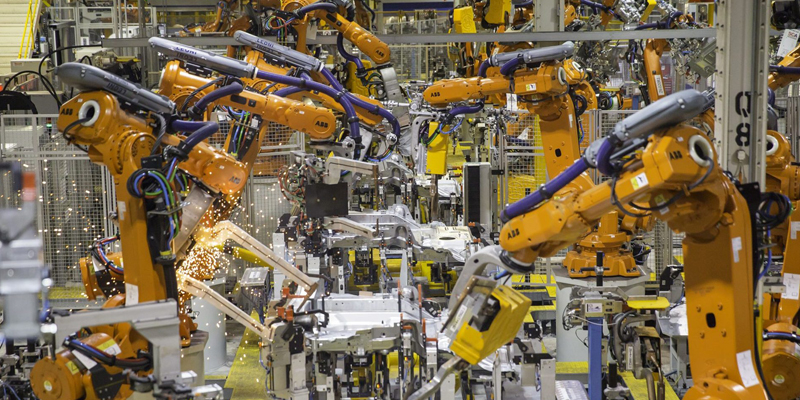
Industry 4.0 integrates many connected devices within the smart factory setup, helping in massive digitalization of any manufacturing unit’s most crucial parts. Assets, Tools and Machinery, transportation, and the operations now come together to deliver efficient results backed by real time synchronicity.
Technologies that empower Smart Factory
- Powerful and on Point Consulting
- Cloud connectivity
- Big data
- Internet of Things
- Cyber Security
- Artificial Intelligence and Machine Learning
- Robotic Process Automation
1) Machine Learning Helps Factories Become Smart and Autonomous

With Machine learning to Production Quality within the Smart Factories, get better with time. The datasets from the systems, platforms, and devices help the machine understand the processes and systems’ defects to deliver the most feasible tweaks in the processes to ensure great quality products.
2) Digital Twinning To Simulate Processes
Digital Twinning helps create a replica or simulation of the assets and production processes within the manufacturing unit to analyze and study the systems and work on the prospective improvements. The 3D simulations created with the large datasets from the systems’ sensors help create farsighted projections and create better processes. The predictive maintenance is a great benefit of maintaining digital twins. This helps in reducing cost and wastage and help timely action when needed.
3) Sensor Technology: The Core of Tracking and Data Collection

Data collection and connectivity are the core of the smart factory, realized through the sensor technology. With the help of robotics, the assembly lines, and production units are automated for faster manufacturing; Smart factory brings the automation close to the new-age technologies like IoT, Cloud, and Big data for an overall enhanced setup.
- Sensor Technology is the smart factory base as it makes it possible to monitor and track all the processes and equipment in the factory and increase the information exchange in real time.
- Therefore, sensing technology is the backbone of the smart factory that helps improve the agility, safety, and efficiency of the production.
- Aided by robotics, human intervention is reduced radically in factories, thereby reducing costing and production times.
4) Big Data Provides the Data Advantage For Informed Decision Making
Big Data helps the smart manufacturing businesses predict and deduce the correlation between the various isolated units and points to create a solid and pre-emptive maintenance plan, which helps avoid any impending failure to machinery or processes.
Big data technology has revolutionized many industries by aiding the management and decision-makers with the information and analytics deduced from millions of data points.
Big data can transform sales, production, and manufacturing lines considerably.
5) Artificial Intelligence Enabling Smart Factories Increase Operational Efficiency Without Human Intervention
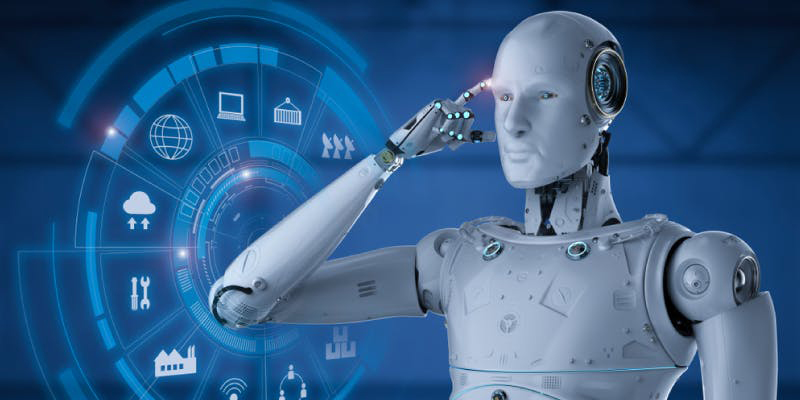
Artificial Intelligence aids the manufacturing ecosystems to prudently learn faster and implement process improvements based on learning through data collected from the various devices and processes.
AI-backed by many other technologies can help the manufacturing enter another modernization phase, enabling low-cost systems to deliver high-end results.
“The artificial intelligence (AI) in manufacturing market size is expected to grow from USD 272.5 million in 2016 to USD 4,882.9 million by 2023, at a CAGR of 52.42% during the forecast period.”
6) 5G to Boost Connectivity

With 5G internet on its way, Smart Factories would see a higher rate of upscaling and increased connectivity. Internet of Things has already been the early facilitators of the innovation in smart manufacturing units bringing communication within the factories. The 5G internet would bring about low latency, high-speed communication in the factories to ensure the production is ahead of expected times and quality.
How Smart Factory Enhances The Business?
1) Increased and Efficient Production
Futurism’s Smart Factory Solutions help increase the overall productivity of the business by providing real time and broader access to live data across the different areas of the supply chain.
This helps create faster communication between departments, keeping the manufacturer’s needs clear at all points of time. There is a reduction in the lag in the supply, and error-free processes enhance overall efficiency with real time and on-point demand-supply cycle.
“When the manufacturers receive what they need, and at the time they need, the entire manufacturing cycle is highly streamlined, increasing operational efficiency resulting in better production and cost-saving.“
2) Enhanced Production Quality
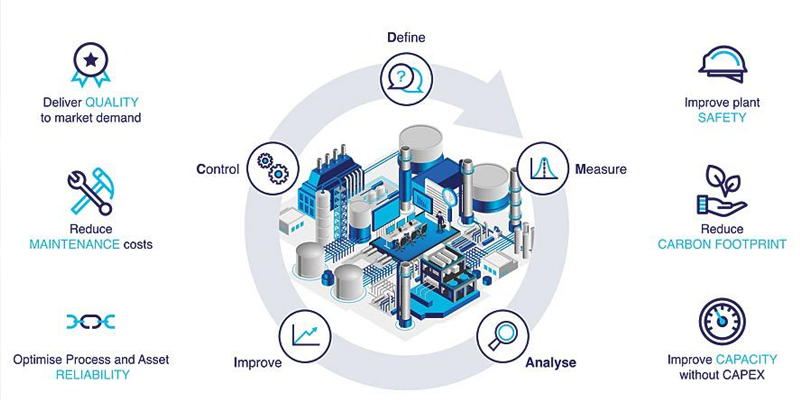
As discussed above, with improved production cycles and considerable cost saving in the manufacturer-supplier processes, the products’ quality is bound to improve.
- Let us understand it on a broader level when the production cycle is improved, the revenue generation is increased, and expenses are decreased.
- The saved funds can be used to enhance product development and overall production quality by implementing newer technologies.
- Smart Factories can utilize various technologies and analytical tools to work with the manufacturing data and align the customer needs with the business offerings.
Smart Factory endows a high level of industry players’ opportunities to create new products and reinvent existing products. Product innovation and re-engineering to cater to the new age customers bring an edge, Certainly.
3) Environment Friendly and Energy Efficient
There is a viable and reasonable use of resources within a smart factory, thereby helping the manufacturers reduce their carbon footprint remarkably.
Conclusion
Our Smart Factory solutions at Futurism, empowers the small and mid-scale manufacturing businesses to achieve a high level of operational efficiency through the adaption of modern technologies, which are the core of Industry 4.0.

Subscribe Now!
TRENDING POSTS
-
The Role of Smart Maritime IoT Solutions in Enhancing Maritime Safety
-
Data Integration Unlocked: From Silos to Strategy for Competitive Success
-
Navigating the Shadows: Understanding Zero-Click Attacks in the Digital Age
-
AI Reimagined: Crafting Next-Gen AI Apps with Expert Fine-Tuning
-
Explore Next-Gen Digital Solutions with Futurism at MWC 2024
-
Futurism Unleashes the Technology of Tomorrow at MWC Barcelona 2024
-
Futurism AI: Turning Ideas into Apps at Lightning-Fast Speed
-
Accelerate AI Across Your Enterprise With Futurism AI
-
Futurism to Address the Biggest Security Challenges at RSS 2022
-
Futurism at SelectUSA 2022: Steering the Next Wave of Businesses
-
Futurism to Uplift the MSP Business Community at the MSP Expo 2022
-
Futurism Sets Out to Address the Biggest Security Challenges at the RSA Conference 2022
-
5 Ways to Prepare Your Business for Digital Transformation
-
4 Ways To Win at Digital Transformation on a Shoestring Budget
-
Futurism: Empowering MSPs at the Channel Partners Conference & Expo 2022
-
Why AI in Digital Marketing is the Next Big Thing?
-
Futurism brings ‘Mobile First Digital Transformation’ to the fore at MWC Barcelona 2022
-
Cybersecurity for Rural Hospitals: How can Rural Hospitals become Cyber Smart?
-
Futurism Empowers Rural Health Care Community at the AHA Rural Health Care Leadership Conference
-
The Biggest Problem With Cybersecurity In Healthcare Sector, And How IBM QRadar Can Fix It?
-
How IBM MaaS360 is Revolutionizing Endpoint Security in the Healthcare Industry?
-
Futurism to Present its MSP Partner Program at the Channel Partners Conference & Expo 2021
-
EndPoint Security in Healthcare Matters and IBM MaaS360 Can Help
-
How AI Will Enable Faster Adaptation of Digital Transformation
-
How Is Digital Modernization Important In Supplier On-Boarding?
-
Top 10 Email Marketing Tips for This Holiday Season
-
Benefits of using ERP Software for Energy and Gas Industries
